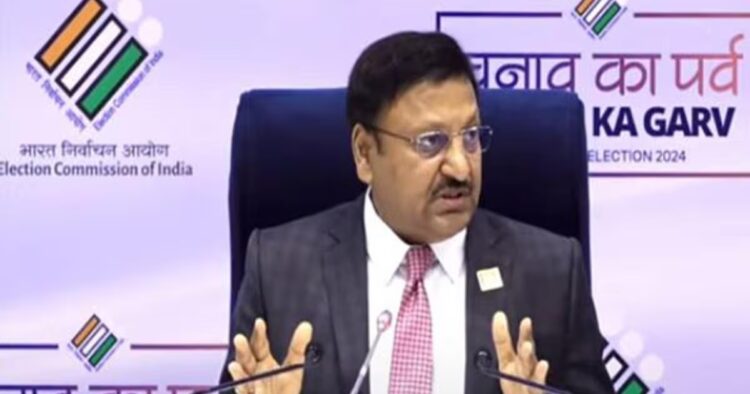In a step to tackle the spread of misinformation and synthetic content ahead of elections, the Election Commission of India (ECI) has issued strict directives to political parties. The commission has mandated that political parties must remove any fake content from their social media accounts within three hours of being notified.
In addition, parties are required to identify and admonish the individuals responsible for disseminating such content.
The ECI expressed concerns over the misuse of social media platforms by political parties, citing instances of misinformation, content manipulation, and impersonation. These activities, if unchecked, have the potential to sway voter opinions and undermine trust in the electoral process.
One particular focus of the ECI’s directive is on deepfake technology, which can produce highly realistic but entirely fabricated audio and video content.
Recent instances involving deepfake videos of prominent figures, including Union Home Minister Amit Shah, have prompted the commission to take decisive action.
Political parties have been instructed to swiftly remove any fake content, warn the responsible individuals within their ranks, and report unlawful information and fake user accounts to the respective social media platforms.
Persistent issues are to be escalated to the Grievance Appellate Committee under Rule 3A of the Information Technology (Intermediary Guidelines and Digital Media Ethics Code) Rules, 2021.
The commission’s move comes amidst growing concerns globally about the misuse of technology to manipulate public opinion, particularly during election periods. By enforcing stringent measures against the dissemination of fake content, the ECI aims to uphold the integrity of the electoral process and ensure that voters are not misled by false information.
From few years, the proliferation of fake news and manipulated media has posed significant challenges for election regulators worldwide. By proactively addressing these challenges and holding political parties accountable for their online activities, the Election Commission of India seeks to maintain the credibility and fairness of democratic elections in the country.
As the use of social media continues to play a pivotal role in political discourse, regulatory bodies face the ongoing challenge of balancing freedom of expression with the need to combat the spread of misinformation.
The ECI’s latest directives represent a significant step towards addressing this challenge and safeguarding the democratic process against emerging threats posed by digital manipulation.

















Comments